Adé dos Santos Ferreira
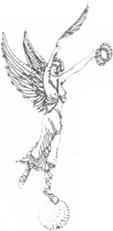
In Macanese dialect:
"CHURADELA DI CHACHA
Chacha, co estunga frio,
Cucús na casa, cháli na riva di ombro,
Nom-têm fim di gurunhá.
Falá vai, falá vêm, ai qui saiám,
Old tánto ancuza assi bom
Di nôsso Macau antigo
Unga trás di ôtro, disparecê.
Pitisqueréra divera sabroso
Qui gente na casa fazê,
Festa-festa qui têm su chiste,
Vida barato, sossegado,
Gente capaz tocá, cantá,
Tudo azinha aguá vai,
Já ficá somente na lembrançá.
"Unga póti di bom perada,
Unga pacóti di barba fino,
Únde têm?", Chacha priguntá.
"Cilicário, felêa, únde têm?
Cabelo di nóiva, genête,
Pudim de lête, batatada,
Dóci di camalénga, únde têm?"
("THE GRANDMOTHER'S LAMENT
It is cold, and the grandmother,
At home, a shawl over her shoulders,
Grumbles incessantly.
Over and over she says that it's a pity
To see so many good things
From our Macau, from the past,
Disappear, one after the other.
Really savoury appetizers
That people made at home,
Festivities that were fun,
Reasonable prices, a tranquil life,
People who could play music and sing,
Everything was lost so quickly,
All that remains are memories.
"A jar of good perada, °
A package of delicious barba, °
Where can one find that?", asks the grandmother.
"Cilicário, ° geleia, ° where has that gone?
Cabelo de noiva, ° genete, °
Milk pudding, batatada, °
Pumpkin jam, what's become of all that?"
"Robuçado di ôvo, dóci di chacha,
Enténa-pôdre, obrêa, mamún,
Bicho-bicho, múchi-múchi.
Nata, fula-fula, bají,
Conquéra, ladú, sarasnsurábi,
Bôlo-mármre, bôlo minino,
Quim têm pa fazê?"
"Vai únde achá chilicote
Chilicote-fólia, pastelinha,
Pám-rechiado, rolête-mínchi,
Bôlo di cambrám, bebinga-rabo,
Co um-cento más ancuza,
Tudo assi bom comê,
Fazê nôs bóca corê babo?"
"Sã, nunca-sã saiám",
Chacha falá co voz di chôro,
"Olà vazio na casa
Nôsso abolô di bólo co dóci,
Pramor di docéra capaz
Co merendéro di agora
Já lembrá ficá priguiçoso?"
Quarentóra na tempo antigo
Sã quelê bom diverti;
Pa tudo vánda olá bôbo
Corê rua na trás di tuna,
Fazê chiste, sabroso pandegá,
Atai-atai olá bôbo ficá asnerám,
Bôbo pegá pau cutí ilôtro.
Casa di gente tai-pán.
Co tudo clube qui Macau têm,
Unga trás di ôtro dá baile
Na semána di entrudo.
Quim cantá, quim pulá-dançá;
Cavá ravirá co treméndo cea,
Torná dançá atê pramicedo.
Lembrá entrudo, Chacha falá
"Comédia sã nádi faltá.
Acunga Chencho di minha pecado,
Juntá ráncho co amigo-amigo,
Subí palco, papiá chiste;
Nho-nhónha enroscá na cadéra
Ri qui xirí... mulká sobrado. "
"Rebuçado de ovos, ° calda de chacha, °
Entena-podre, ° obreia, ° mamoon, °
Bicho-bicho, ° múchi-múchi, °
Pastéis de nata, ° fula-fula, ° bagi, °
Coconut cake, ladu, ° saransorável, °
Marble cake, bolo menino, °
Does anyone still know how to make them?"
"Where can one find chilicote, °
Puff pastry, pastelinha,
Pão-recheado, ° croquettes,
Shrimp cakes, turnip spread,
And many other things,
All so delicious,
That they leave us wanting more."
"Is it or is it not a pity?",
Asks the grandmother in a tearful voice,
"To see the ternos for cakes and pastries
Empty in our homes,
Because the excellent confectioners
And today's pastry makers
Have become lazy.
In the old days the carnival
Was endless fun;
There were costumed people everywhere
Following the musicians through the streets,
Joking around and playing.
The Chinese children would swear
And the costumed people would hit them with sticks.
One after the other there were balls
In the houses of the important people
And in all the clubs in Macau
The week of Carnival.
Some sang, others danced joyfully,
And after eating a sumptuous meal,
They danced until dawn.
Remembering the carnival, the grandmother says:
"There was no lack of fun,
Chencho, my partner in crime,
Accompanied by his buddies,
Would get up on stage to tell jokes.
The ladies, doubled over in their chairs,
Laughed until they wet their pants, and the floor."
Masqui paga, na tempo antigo,
Sã ungu mán pequinino di pataca,
Vida barato fazê gente
Vivo co más pôco consumiçám.
Sabe ficá dóna-di-casa,
Sapeca sã lôgo chegá
Pa tudo laia di dispésa.
Casa pa lugá, cinco-sês pataca,
Cuzinhéra, unga-dôs pataca,
Lavadéra co apô cartá-águ
Nádi más qui unga pataca.
Dôs pataca têm luz pa lumiá,
Na pôço têm águ pa lavá
Na horta rancá fruta comê.
Vai bazar comprá som
Co sassénta avo na bolsa,
Vêm casa co brêdo, cambrám,
Vaca, áde salgado.
Si chapá más trinta avo,
Pôde comprá pôrco, lombo,
Co unga perna di galinha.
Pêsse co géma di ôvo di áde,
Tau-fu co fula-papaia,
Sã comida di gente pobre.
Onçôm na casa criá galinha,
Sã têm ôvo pa ravirá.
Comprá nhame co batata,
Nancassá gastá vinte avo.
Pensám di Chencho reformado
Sã sassénta pataca na-más;
Su filo Atútu ganhá novénta.
Chacha fazê bôlo vendê,
Maria costurá pa gente.
Pegá tudo sapeca chapá juntado,
Ilôtro vivo dizafogado.
Nom-têm fim di lamuriá,
Chacha falá agora têm sapeca,
Tamêm nom-têm ancuza bom.
Têm caréta, têm casarám,
Gente capaz, maquinéta novo,
Mâz nom-têm do-dol sabroso
Pa nôs ruçá biscoito comê!
Despite the fact that in those days incomes,
Were but a few Patacas,
Things were moderately priced, so people
Had fewer worries.
A good housewife,
With all kinds of expenses,
Knew how to make ends meet.
A rented house, five or six Patacas;
A cook, one or two Patacas,
A washerwoman and a cleaning woman
Did not represent more than one Pataca.
With two Patacas one could buy electricity,
The well supplied water for bathing,
The orchard supplied fruit.
We went to the market for groceries
With sixty Avos in our wallet.
And returned with greens, shrimp,
Beef, salted duck.
With another thirty Avos,
We could buy pork, ribs
And a drumstick.
Fish and duck-egg yolks,
Soy and flowers from the papaya tree
Were poor people's food.
At home, we raised chickens
And had eggs to spare.
To buy yams and potatoes,
We didn't need to spend twenty Avos.
Chencho's retirement pension
Was a mere sixty Patacas.
His son Atútu earned ninety,
The grandmother made cakes for sale,
Maria earned a living with her sewing.
With all this money,
They lived comfortably.
In an endless lament,
The grandmother says that now there is no lack of money;
What we lack are good things.
There are houses and mansions,
Skilled people and modem appliances,
But there is no savoury do-dol, °
To eat with biscuits.")1
António M. Couto Viana
"GRAVURA ANTIGA DE MACAU
Nonha recebe com chá
E sabr'oso surang-surave
As amigas do bafá,
Chacha-chacha nos seus dós,
De jeito gentil e grave,
Que chegam de riquexós.
Nhonha veste um baju leve
Moldando os limões do peito,
A mão do nhom, se atreve.
Não receia as pei-pá-chais:
No escurinho do leito,
Ambos são risos e ais.
Nhonha deixa o arrebique
Com face de loiça fina.
Passo breve, tique-tique,
Vai á janela, abre as reixas.
E, entre a boa e a má sina,
Diz amores e escuta queixas.
Nhonha compõe a saraça,
Sentadinha na cadeira,
Toda atenta ao que se passa,
Alegre de malinguar,
Pés na frescura da esteira
Que a bicha cansa a esfregar.
(Que saudade, esta Macau
Que eu adivinho feliz,
Morando all no Lilau,
Com respeito, dengue e ardor;
Jardim de mulher-raiz
Com chiste de mulher-flor."
("AN OLD PRINT OF MACAO
Nhonha ° serves tea
And delicious surang-surave °
To the friends who play bafá ° with her,
The old women with their black mantles,
With a genteel and grave manner,
Who arrive in rickshaws.
Nhonha puts on a light blouse
That reveals the curves of her breasts,
Which the hand of the nhom ° dares to touch.
She does not fear the pei-pá-chais: °
In the darkness of the bedroom,
Both laugh and moan.
Nhonha leaves the dressing table
With a fine porcelain face.
A short step, tick-tick,
She goes to the window, opens the shutters.
And between the good and bad fortune,
Speaks of love and listens to complaints.
Nhonha fixes her sarong,
Sitting in her chair,
Attentive to what goes on,
Happy to be speaking ill of people,
Feet on the cool mat
That the bicha ° is tired of scrubbing.
(What longing, this Macao
That I presume happy
Living there in the Lilau,
With respect, affectation and ardour:
A garden of a root-woman
With the wit of a prostitute.")
Maria Ana Acciaioli Tamagnini
"FOLHAS DE LÓTUS
Sobre folhas de lótus escrevi
As letras do teu nome, meu amor.
Naquelas folhas que a sorrir colhi
Ao debruçar-me sobre o lago em flor.
Sobre folhas de lótus desenhei
0 mais risonho trecho da cidade;
E esse leve desenho que tracei
Dir-se-ía uma paisagem feita de jade.
O teu nome mais belo se fizera
No relevo das letras bem gravadas,
A paisagem lembrava Primavera
Sobre o verde das folhas espalmadas.
Apertei-as de encontro ao coração.
Senti meu peito como a flor a abrir...
E todo o Oriente feérico e pagão,
Sobre folhas de lótus vi surgir.
Ah! Se eu pudesse, como outrora, ao luar,
Por esses lagos nos jardins dispersos,
Ir as folhas de lótus apanhar
Para sobre elas escrever meus versos,
Essas folhas de estranha singeleza
Dariam á poesia outro valor,
E eu realizava um sonho de beleza:
Um livro cheio de perfume e cor."
("LOTUS LEAVES
On lotus leaves I wrote
The letters of your name, my love,
On those leaves I smilingly gathered
As I bent over the lake filled with flowers.
On lotus leaves I drew
The most pleasant setting in the city;
And that light drawing I made
Was like a jade landscape.
Your name was all the more beautiful
In the carefully engraved letters.
The landscape evoked Spring
On the smooth green leaves.
I placed them against my heart.
I felt my bosom open like a flower...
And I saw the magical, pagan Orient,
Emerge on lotus leaves.
Ah! If only I could, as in the past,
Gather lotus leaves in the moonlight,
From the lakes in the gardens,
To write my verses on them,
Those strangely simple leaves
Would give the poetry greater significance,
And I would realize a dream of beauty:
A book full of fragrance and colour.")
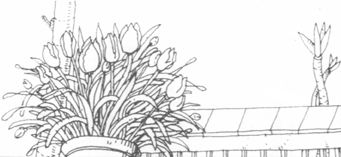
Alberto Estima de Oliveira
"ALTO CONTRASTE
o início do diálogo
será como o Outono
igual ao tempo seco
ameno, próprio para descer à rua
e estontear pelos locais
onde se movem
os restos do bazar
conversa estranha por dentro do silêncio
de sons reconvertidos das vielas
pergunto-me ao chegar, se alguma vez cheguei
como seria a vida que se dizia calma
neste minúsculo resto do corpo da cidade
vou desfiando o espaço que ainda sobra
num rosário de rostos e serviços
nas tendas e nas esquinas aninhados
retenho os verdes expostos nas bancadas
separo vermelhos amarelos e outras cores
e vou pintando os muros desolados
saúdo com sorrisos quem comigo cruza
e me conhece. pergunto às sombras
de vultos imprecisos, coisas antigas
memórias das janelas
dos nomes pouco ou nada me recordam
reais ou anónimos os vivos os transportam
dos longos cabelos e das tranças
tenho uma vaga ideia a que acrescento
os olhos submersos em destinos
das mãos feitas de cera e madrugada
recolho a dádiva
do corpo que não vejo mas pressinto
ocultam-se as colinas as encostas
vales e bosques da terra
mãe chorada
("HIGH CONTRAST
the beginning of the dialogue
will be like Autumn
like the dry season
pleasant, good for going out on the street
and wandering through the areas
where the leftovers from the Bazaar
are being moved
a strange conversation within the silence
of the echoing sounds of the alleys
as I arrive I ask myself, if I've ever arrived
how life would be if it were calm
in this minuscule remnant of the body of the city
I seek out the space that is left over
in a succession of faces and services
sheltered in the stalls and on street corners
I retain the greens exposed on the benches
separate reds, yellows
and other colours and paint the desolate walls
I greet those I meet and who know me
with a smile. I ask the shadows
of the indistinct figures, ancient things
memories of the windows
I remember little or nothing of the names
real or anonymous the living carry them
of the long hair and the braids
I have a vague idea to which I add
the eyes submerged in destinations
I remember the offering
from the wax and dawn hands
the hills and slopes
the valleys and the forests
of the longed-for mother land
hide from the body I can feel but cannot see
dos detritos imundos e dos restos esqueço-me não vejo
porque o céu sobre os telhados é azul e o sol e uma festa"
the dirty debris and the leftovers I forget I do not see
because the sky above the roofs is blue and the sun is a feast")
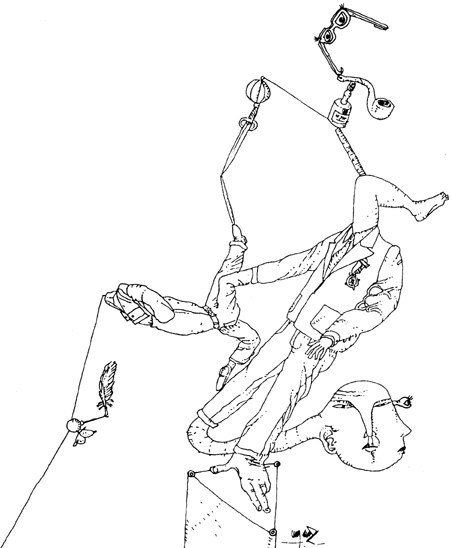
António Correia
"ORAÇÃO À SERENIDADE
Vem, serenidade!
Traz um manto de luar,
Salpicado de estrelas
e afaga meu coração,
que tem febre de vê-las,
mail perto da gente
aflita,
sem lar
e sem pão,
na cidade do homem-bicho,
bebendo angústias,
em farrapos de nuvens,
presos ao chão.
Vem, serenidade!
Limpa a minha mente
de todo o capricho,
das coisas banais
e da dor infinita
da ansiedade;
fala-me de altas montanhas
e dos pastores de ovelhas
que por lá moram,
sem pressas nem medos,
não desejando mais
do que elas lhes dão
e os frutos silvestres,
uma flauta, um cajado,
um cabana e um cão.
Vem, serenidade!
Dá-me, sem sombras nenhumas,
a luz que me empreste
a visão e a sanha
de rasgar chuvas e brumas
com meus própios dedos.
("PRAYER TO SERENITY
Come, serenity!
Bring a mantle of moonlight,
sparkling with stars
and lighten my heart,
which aches to see them,
but near the distressed,
homeless
people
in need of bread, in the city of the animal-man,
drinking anguish,
in rags of clouds,
stuck to the ground.
Come, serenity!
Clear my mind
of all caprice,
of trivial things
and the infinite pain
of anxiety;
speak to me of high mountains
and of the sheep herders
who live there,
with neither haste nor fear,
wanting nothing more
than what they give them
and the wild fruits,
a flute, a crook,
a hut and a dog.
Come, serenity!
Grant me, without shadows,
the light that will give me
the vision and rage
to tear rain and mist
with my own fingers.
Vem, serenidade!
Alerta-me os sentidos
com a brisa do bambual
e um som de asa,
a bater ao de leve,
nos meus ouvidos;
põe, dentro de mim,
uma ideia que me enleve
na imensidão do céu,
para que possa ser eu
o destino final
do ciciar da ternura.
Vem, serenidade!
Pinta, no meu olhar,
os sonhos da lonjura,
num dia sem névoa;
enche-o das cores das
manhãs floridas,
para que se diluam,
na harmonia do espaço,
onde flutua a quietude do tempo.
Vem, serenidade!
Liberta o meu espírito
para que ele não pense,
não se torture, nem se alegre,
mas veja, sem disfarce,
a natureza íntima
de cada gesto e cada coisa.
Vem, serenidade!
Faz de mim espelho
onde repouse
e se condense
a límpida claridade
da tua face,
serenidade!"
Come, serenity!
Awaken my senses
with the breeze of the bamboo grove
and the sound of wings,
flapping softly,
in my ears;
place, within me,
an idea that will transport me
to the vastness of the sky
so that I may be
the final destination
of the whisper of tenderness.
Come, serenity!
Paint, in my eyes,
dreams of great distances,
on a clear day;
fill them with the colours
of flower-filled mornings,
so that they may be diluted,
in the harmony of space,
where the quietude of time
drifts.
Come, serenity!
Free my spirit
so that it will not think,
will not torture itself or be joyful,
but will clearly see
the intimate nature
of each gesture and each thing.
Come, serenity!
Make me a mirror
where the limpid clarity
of your face,
serenity,
will rest
and be condensed!")
Carlos Marreiros
"ESPELHO DA MINHA AVÓ
0 espelho biselado
com moldura de pau preto
e requinte ornamental chinês.
Baço pelo tempo
passo a passo
em água se tornara.
0 brilho há muito voara,
deixando cinzenta
a planície espelhada.
A minh'avó chinesa
há muito que não me aparecera
no espelho de mandarim.
E como as últimas águas se foi
com os arrozais
para nunca mais."
("MY GRANDMOTHER'S MIRROR
The mirror with bevelled edges
a black wooden frame
and quintessential Chinese decoration.
Tarnished with age,
little by little
it will turn into water.
The lustre disappeared long ago,
greying
the mirrored surface.
It has been quite a while
since my Chinese grandmother
appeared to me in the mandarin mirror.
And with the last waters
with the rice fields
she left forever.")
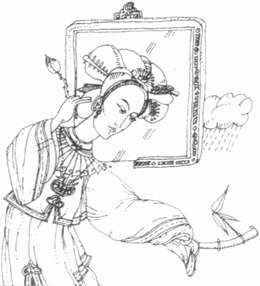
Fernanda Dias
"0 PASSO DO VAGABUNDO
0 Sol desamarrou as rendas do bambu
no saibro meticuloso.
Os velhos limpos, jogam damas
debaixo das grandes ficus
e na orla dos relvados
raparigas cristãs lêem os livros pios.
Os donos dos pássaros cativos
esperam plácidos, o fim dos recitais.
Penso nos seres do ar, em gaiolas ou não:
a menos que não tenha nome,
tudo o que tem nome em Macau tem dois nomes
e o Jardim de Camões também é o das pombas.
Múltiplo canto na manhã dormente:
urbanas aldeãs de chapéu de bambu
e avental de chita varrem as alamedas.
Apanho coisas caídas
penas, folhas delidas, bagas
por vezes inocentes por vezes tenebrosas
asas de borboletas e avos com verdete.
Coisas tão sem destino
e como eu ausentes;
e no entanto, aos céus gritando
uma presença frágil
quase a esvair-se de tão intensa e dura,
no eco das manhãs cristal da tarde.
E quando ridentes passam os namorados
cai sobre mim o Sol de Maio
em ardentes estilhaços."
("THE WANDERER'S STEP
The Sun untied the bamboo lace
in the meticulous gravel.
The clean old men play checkers
under the tall banyan trees
and on the edge of the lawn
Christian girls read religious books.
The owners of the caged birds
wait placidly for the end of the recitals.
I think about the creatures of the air, both in and out of cages:
unless it does not have a name,
everything that has a name in Macao has two names
and Camões'garden is also the garden of the pigeons.
Multiple song in the sleepy morning:
polite village women with bamboo hats
and calico aprons sweep the avenues.
I gather fallen objects
feathers, damaged leaves, rings
sometimes harmless, sometimes mysterious
butterfly wings and avos green with age.
Things without a destiny
and, like me, absent;
yet, crying to the heavens
a fragile presence
so intense and hard that it almost faints away,
in the echo of the mornings crystal of the evening.
And as the smiling lovers go by
the May Sun falls upon me
in silver fragments.")
Margarida Ribeiro
"OPERÁRIA
Parem e olhem para ela
Que vos merece atenção
Magra como uma gazela
Negra que nem um tição,
Não é um "ele", é uma "ela"
E anda na construção...
Nunca será capataz
0 posto está-lhe vedado
Mas é sempre ela quem faz
0 trabalho mais pesado.
Magra como uma gazela
Negra que nem um tição,
Não é um "ele", é uma "ela"
E anda na construção...
Tanto defaz um valado
Como chafurda na lama
À noite o corpo cansado
Muitas vezes nem tem cama.
Magra como uma gazela
Negra que nem um tição,
Não é um "ele", é uma "ela"
E anda na construção...
("WORKER
People stop and look at her
Why do you get attention?
Thin as a gazelle
Darker than coal.
It is not a "he", it is a "she"
And she is a construction worker...
She will never be a foreman
A position not open to her
But she is always the one
Who does the heaviest work.
Thin as a gazelle
Darker than coal.
It is not a "he", it is a "she"
And she is a construction worker...
She breaks up dykes
And is covered in mud
At night her body, tired
Often goes without a bed.
Thin as a gazelle
Darker than coal.
It is not a "he", it is a "she"
And she is a construction worker...
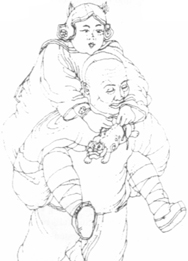
Tem precário vencimento
Que dor e tristeza encerra
Mas é o único sustento
Da família lá na terra.
Ela é que os mantém a todos,
A todos sem excepção.
Não é um "ele", é uma "ela"
A font e do ganha-pão.
Sonha um dia descansar
Ser tai-tai, ou ser senhora,
Poder as unhas pintar
Mandar os calos embora.
Pensa que terão por ela
Respeito e muita atenção.
Magra que nem uma gazela
E branquinha como um pão.
Para mim e do coração
Deixa que te diga agora,
Foram os calos da mão
Que te fizeram SENHORA!"
She makes a precarious living
That pain and sorrow enclose
But she is the only means of support
Of the family back home
She is the one who supports them all,
All of them, without exception.
It is not a "he", it is a "she"
Their source of income.
She dreams of resting one day
Of being a tai-tai or a lady,
Of being able to polish her nails
And get rid of her callouses.
She thinks they will feel
Respect for her and pay her attention.
Thinner than a gazelle
And white as a loaf of bread.
For me and from the heart,
Let me tell you now,
The callouses on your hands
Are what made you a LADY!")
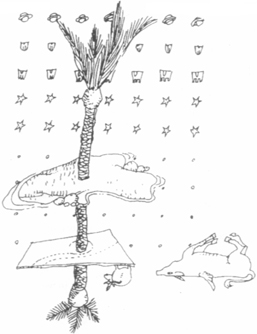
João Azeredo
"PÁTIO DA ETERNA UNIÃO
Toponímica vontade
à hora do sol já não ser
talvez já só reste
-- ou resto --
quociente liso
deixado no cinzento do pátio
pela divisão subitamente angular
da parede pelo passo
-- ou talvez não --
e afinal passar
União
ainda molhada de nascer
Eterna
até amanhã à hora de outros sóis
que me não restam
porque pelo meu dividendo
já só eu me resto"
Jorge Arrimar
"SILÊNCIO-SOM
Silêncio
no exílio do movimento
um canto
dois cantos
très cantos
quatro cantos
do quadrado onde te
reconheço
buda de quatro faces
Som
no auxílio das palavras
um canto
dois cantos
três cantos
quatro cantos
do coro onde te
oiço
cânone a quatro vozes"
("COURTYARD OF ETERNAL UNION
Toponymic desire
at the hour when the sun is no longer
maybe all that is left
-- or I am left --
smooth quotient
left in the grey courtyard
by the suddenly angular division
of the wall by the passage
-- or maybe not--
and finally I pass
Union
still wet from birth
Eternal
until tomorrow at the hour of other suns
that I do not have left
because by my dividend
I am all that is left me")
("SILENCE-SOUND
Silence
in the exile of movement
a song
two songs
three songs
four songs
from the square where I
recognize you
Buddha with four faces
Sound
in the assistance of words
a song
two songs
three songs
four songs from the choir in which I
hear you
a canon for four voices")
Fernando Sales Lopes
"PESSOA
O que sentirias tu, ou vocês?
Por esta China misteriosa
Envolta em fumos mensageiros
E hexagramas com que adivinha
A constante descoberta de si.
Que impenetrável monge serias tu?
Ou que usurários, servos, mandarins
seria cada um de ti? Que visões terríveis te dariam
Os Flora alquimista de Buda, Tao Confúcio?
Que Fung-soi vos libertaria
Do mundo das idades sombrias
E te revelaria o futuro
0 saber. A verdade. O arquitecto
Que longe nunca encontraram. "
Tereza Sena
"SEM TÍTULO
No Oriente não há crescentes
Há um rio recheado de pérolas
e luzes vermelhas
candeias de Buda
numa pirâmide de frutas
No Oriente não hás crescentes
Há um ciclo lunar
quarto minguante,
lua nova e lua cheia
Há uma palmeira,
um telhado metálico
e o som da água
No Oriente não há crescentes
Há fábricas de luz
um jardim
e as grades da minha janela
Crescentes no Oriente?
So uma vez por mês"
"PERSON
What would you feel?
For this mysterious China
Enveloped in smoke that carries messages
And hexagrams with which it predicts
The constant discovery of itself.
What impenetrable monk would you be?
Or what usurers, servants, mandarins
Would each one of you be?
What terrible visions would you have
From Buddhist, Daoist and Confucian alchemical Flora
What Feng-shui would liberate you
From the world of the dark ages
And reveal to you the future
Knowledge. Truth. The distant architect
Who has never been seen.")
("UNTITLED
In the Orient there are no crescents
There is a river filled with pearls
and red lights
Buddhist lamps
on a pyramid of fruit
In the Orient there are no crescents
There is a lunar cycle
waning moon,
new moon and full moon
There is a palm tree
a metallic roof
and the sound of water
In the Orient there are no crescents
There are light factories a garden and the bars on my window
Crescents in the Orient?
Only once a month.")
Josué da Silva
"CAMÕES A ORIENTE TRISTE
Foste vendaval, crista de onda verde
cuspindo sangrenta o desprezo pela vida,
quando entre ti, se interpunha a sede
de ires à lua, de espada à lida,
para dares à Grei a honra que precede
o ser primeira e sempre decidida
a soltar nos mares o grito de bravura
ao leme de todos os cabos da esperança,
que a terra era um sem pão de amargura,
um zé-ninguém da dor e sem herança
capaz, pr'a dar aos filhos um algo de ternura
mesmo conquistado na ponta duma lança
E serias tu, peão desavindo do poder
como cão atirado na lama do sistema,
quem na tua taura lira e em teu crer
em delírio, ofertava à Mãe suprema
a chama e a luz de se reconhecer
inteira, no canto universal do teu poema.
Por fim aqui me encontro Insigne Varão
nesta gruta tão triste e tão sombria,
tentando nela haurir toda a paixão
que obriga com que desta pedra fria,
se oiça o palpitar de um coração
que fez de Portugal, a alma da Poesia."
("CAMÕES WITH A SAD BEGINNING
You were devastative, crest of the green wave
bloodily spitting despair through life,
when the thirst to go to the moon, to take up the sword,
to give the Nation the honour that precedes
being first and always resolute,
came between you
letting out at sea the cry of bravery
at the helm of all capes of good hope,
that the land was a bitter, hungry wretch
a miserable nobody without an inheritance
capable, to give his children a bit of tenderness
though conquered on the end of a spear.
And it would be you, foot soldier disagreeing with those in power
like a dog hurled into the mud of the system,
who in your?? lyre and in your belief
in delirium, offered the Supreme Mother
the flame and the light of knowing herself
whole, in the universal song of your poem.
At last I find myself here Illustrious Man
in this dark and lonely grotto,
trying to soak in all the passion in it
which makes one hear in this cold stone,
the beating of a heart
that made Portugal the soul of Poetry.")
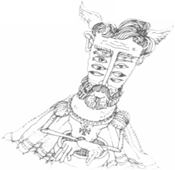
Isaura Matos
"MACAU
"Princesa enfeitiçada
descoberta por uma Nau,
foi ela desencantada
e corn nome de MACAU,
pura sempre baptizada.
Moldada em porcelana
frágil, sempre menina,
no Rio das Pérolas se banha
deixou de ser pequenina.
Na águas seu corpo se espelha
movendo-se em harpas de jade.
Cabelos, fios de seda
brilhando como cetim,
mãos de rara beleza
lançam cheiros de jasmim.
Aveludados e negros seus olhos
dois traços bem desenhados
na face cor de marfim,
escondendo seus escolhos.
Na dimensão dos seus braços,
abertos ao MUNDO inteiro,
acolhe-os em poucos espaços
com seu AMOR verdadeiro.
Baloiça na aragem da sorte
que a põe a flutuar,
servindo-lhe também de suporte
para não se afogar.
Cidade do Nome de Deus,
que nesta viragem da História
não sejas atraiçoada,
são profundos votos meus.
Guardo na minha memória
a Princesa mais amada
ao partir digo ADEUS
Vai comigo acorrentada."
("MACAO
Enchanted princess
discovered by a sailing vessel,
disenchanted was she
and forever baptized
with the name MACAO.
Moulded out of porcelain
fragile, forever youthful,
she bathes in the Pearl River
and is no longer small.
Her body is reflected in the water
moving on jade harps.
Hair, strands of silk
shining like satin
hands of rare beauty
with the fragrance of jasmine.
Her velvety black eyes
two well-defined lines
on the ivory-coloured face,
concealing her dangers.
Within her arms,
open to the whole WORLD,
she welcomes people in little space
with her true LOVE.
She swings on the winds of fortune
that make her fluctuate,
but also support her
so that she will not drown.
City of the Name of God
may you not be betrayed
at this turning point in History,
that is my deepest wish.
I hold in my memory
the most beloved Princess
and as I leave I do not say GOODBYE.
She remains attached to me.")
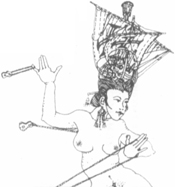
Pedro Ferreira
"TEMPLO
Até dói a arquitectura de Sim final
onde o suor plástico emudece o tempo
e a treva, admirada
de não haver ainda sol, vive o seu dias,
completo de revoluções e terraços puros.
Quando num ralenti ténue lá entramos,
velados de ocidente e tentando não parecer
um triste império sem fim, retardamos o olhar
buscando o socorro das estátuas
férteis das dinastias.
Mas de nada vale o ignorado ou o que foi se às mãos não vêm nunca as exactas palavras para o silêncio.
De nada vale o alfabeto das viagens, os rosários
tão pouco lembramos a memória dos infantes,
Deram-nos um ventre
e nós fizemos filhos de sorte,
somos brutos.
No centro há um adro aberto com poros dum corpo dourado
que respira a mãe, a cidade que para o fim se retoma e veste o rosto de bandeiras que as
crianças trazem pela mão.
Dor da despedida, derrota de conventos,
Cáfora, ao largo, o rio diz que sempre correu, e as memórias com ele,
cartilha do futuro
que a um toque sofremos
no cheiro e caímos do verde
para o vermelho, e da lage huminícula
para o guerreiro do estandarte sustenido."
("TEMPLE
It even hurts, the architecture of the final Yes
where the plastic sweat silences time
and the darkness, surprised
that there is still no sun, lives in its day,
complete with revolutions and pure terraces.
When we entered there in a tenuous slow pace
veiled by the West and trying not to look like
a sad empire without end, we looked a little longer
seeking help from the fertile
statues of the dynasties.
But what is ignored and what was is worth nothing if the exact words for silence never come to mind.
The alphabet of travels, the rosaries, are worth nothing
neither do we remember the fame of the infantes.
They gave us a womb
and we made children of fortune,
we are inhuman.
In the centre there is an open churchyard like the pores of a golden body
that the mother breathes, the city that towards theend recovers and puts on
the face of flags that the children carry.
Pain of goodbye, the route of convents.
Out here, far away, the river says that it has always flowed, and the memories with it,
future primer
that with a touch
our reputation suffers and we fall from green
to red, and from the??
to the warrior of the sharp standard.")
齊思
自白
交易是你情還是我願
這我不管
你是有著無可測度的財富
這我比你更淸楚
我是有著無盡的欲念的霸權者
這你也該明白
我有的是二硫化碳酸氫氧化
鈉矽或是什么重金屬核廢料
之類的傑作
用來換
你那些珍珠瑪瑙石油煤天然氣
或是什么金剛黃金白銀的東西
上帝從未與子民作任何交易
我現在和你簽的合約
比神的恩賜更恩賜
無論接受與否
這交易已開始
直至你的所有變成我的所有
Qi Si
("CONFESSION
Whether the business is yours or mine,
Is not important to me.
You have immeasurable wealth,
That I know better than you;
I have all the ambition,
Which you must also know well.
I have the best products,
Made with carbon bisulphate,
Sulphuric acid, sodium hydroxide
And silicon hydroxide,
Or other heavy metals
And nuclear wastes,
To exchange with you,
The pearls, agates, petroleum,
And natural gas,
Or diamonds, gold, and silver.
God did not do any business,
With his human children.
Now, I sign a contract with you,
That is more beneficial than the one God benefited from.
Whether you like it or not,
The transaction has already begun,
Until everything you had,
Became mine!")
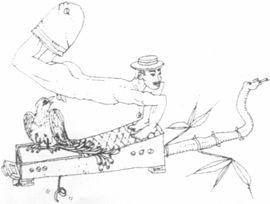
魏源
澳門花園聽夷女洋琴歌
天風送我大西洋
誰知西洋即在澳門之島南海旁
怪石磊磊木千章
園與海濤隔一墻
墻中禽作百蠻語
樓上人通百鳥語
鳥聲即作琴聲譜
自言傳自龍宮女
蟬翼纖羅髮鬚鬖
廿弦能作千聲彈
有如細雨吹雲間
故將兒女幽窗態
寫出天風海浪寒
似訴去國萬里關山難
倏然風利帆歸島
鳥啼花放檣聲浩
觸碎珊瑚撫瑟聲
龍王亂撒珍珠寳
有時變節非絲竹
忽又無聲任剝啄
雨雨風風海上來
蕭蕭落落燈前簇
突并千聲歸一聲
關山一雁寥天獨
萬籟無聲海不波
銀河轉上西南屋
鳴呼
誰言隔海九萬里
同此海天雲月耳
膝前況立雙童子
一雙瞳子翦秋水
我昔夢蓬萊
有人長似爾
鞭騎么鳳如竹馬
桃花一别三千紀
嗚呼
人生幾度三千紀
海風吹人人老矣
Wei Yuan
("LISTENING TO THE FOREIGN LADY PLAYING PIANO IN THE GARDEN IN MACAU
The winds of heaven carry me to the Atlantic city.
Surrounded by the South China Sea,
there it is, surprising, the Macao peninsula.
Fantastic rocks in the intense forest.
The garden, separated by a wave wall.
The birds singing in strange tongues,
the people, in the pavilion, speaking various languages.
The songs of the birds are piano notes,
produced, it is said, by the daughter of the Dragon.
The lady, in the lightest silk and with hair like clouds,
delivers a thousand effects of sound from the twenty chords,
That are like drizzle blowing between the clouds,
accompanying the wind and the cold wave,
communicating her loneliness and bitterness
for she left her homeland long ago.
Suddenly, marvellous melodies are heard,
sometimes like ships returning to port on a wind,
rocked by the songs of the birds among the flowers,
and by the laughter of the fishermen on shore;
at other times like coral that breaks, or like the Dragon King,
spilling pearls on the ground.")
Then, silence,
allowing the imagination to soar.
Little by little, the wind and the rain that have come in from the sea,
embrace each other near the lantern.
Suddenly, the thousand sounds are reduced to only one,
like a solitary goose flying through the wide-open sky.
The sea is calm, the world is silent,
as the Milky Way emerges southeast of the building.
Ah...
who said that we are separated by a great distance,
if, in fact, we live with the same sea and the same sky, with the same cloud and the same Moon.
Beside the lady, two children,
with eyes as bright as the waters of Autumn.
I met children like these,
in the land of the gods, in my dream.
Mounting the phoenixes as if they were bamboo horses.
"The world of the peach-tree flowers" has been disappearing for three thousand years.
Ah...
How many three thousand years are there in a human life?
The sea breeze that blows over our Being ages us each day.")
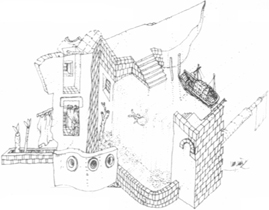
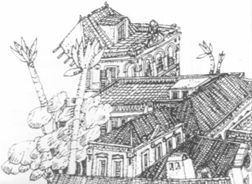
梁披雲
澳門盧園挹翠
曲徑方溏得地偏
芳亭一角自淸便
緃横域外大瀛海
俛仰壺中小綠天
露竹風荷呼共語
長竹高樹看齊肩
聞來漸覺滄洲趣
樂與園林數嵗年
姚京明
夜
看見閃爍的草帽
掛在了星星的栅欄
這是出擊的信號
碩大的黑色剪刀
剪出風景的輪廓
詞匯的大火
從內部
把天機泄露
窗子是夜的眼睛
燈光不是一種需要
激情永遠年輕
孤獨没有禁忌
只有煙缸里的時間
記錄著檔案的衰老
晨光熹微
愛情揉揉眼睛
在多解辭典中
辨别路標
Leong Pei Wen
("LOU LIM IOK GARDEN
The path winds along the square lake,
Hidden in a quiet place,
The enchanting pavilion alone occupies the home of solitude,
Amusing itself in all tranquillity.
The immense Sea undulates out of the territory,
The small green space remains here in the garden.
The wet bamboo and the oscillating lotus speak with the same voice,
The dense pine competes with other tall plants.
I remember Cang Zhou's pleasant landscape,
And I like to compare age to the garden.")
Yao Jingming
("TO TRAVEL BY NIGHT
To travel by night
is to measure the immensity of desire in insomnia
is to recover the late seeds ephemerally
is to probe the mystery again in the swinging of the shadow
is to search for oneself
in the mirror of the morning dew
There are never news from the threshold nor does the beak of the
gull bring the expected song
And thought still at the window insists on repeating the cycle of the clepsydra
Finally, to travel by night
is to prolong waiting")
汪兆鏞
崗頂波樓竹枝詞
宛邱自昔詠婆婆
高會時時共踏歌
百萬羊鐙千斛酒
紅氈觎上美人多
葦嗚
觀音堂觀秋螢觀自在記
晚鐘敲響斜陽的禪機
僧禱的餘音漸遠
我買棹歸来,徘徊沉思
大海流轉於彩霞里
悲無法也無量
而世法
原來在雙手中
落花之瓣與紅葉
靜臥,廡廊留影的時候
恰有一頭螢火蟲
隨微風飛近
隨深秋
飛入
蒼涼的古寺
Wong Zhao Yong
("IN THE DOM PEDRO V THEATRE
The dances follow each other on the old hill, continuing throughout the night;
Celebrating the joyful encounter singing to the rhythm of the melody.
The light of ten thousand multi-coloured lanterns, the wine reflects the gaiety in a thousand glasses:
As many beauties as there are clouds twirl, as they step on the red carpet.")
("KUN IAM TEMPLE
The bells signal the evening Buddhist meditation
Drowning out the prayers of the monks little by little
So I immersed myself in thought after returning from the sea
which was still bathed in the red light of the setting sun
Sorrow has no horizon and boats have no destination
Ultimately, the laws of the world are in both hands
The fallen petals and the reddish leaves
Lie in the silence, just as the portico cast a shadow
A firefly began to fly
To the rhythm of the breeze
And the full Autumn
Finally turning off its light
In the solitude that reigns in the old temple")
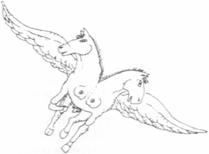
馮傾城
日落里斯本
博彩的美夢
烤赤了黃昏的天空
堤榕黯然垂下眉睫
下注聲開始了不夜的宣言
海鷗倦立
暫停與水翼船作往返飛奔
的追逐
浪潮引退
泥潭張羅魚蟹蝦的陷阱
當輪盤多轉一圈
夕照終於迭入
垂釣者久候的魚簍
於是
那來自南半球擲來的一把
雪亮的鐮刀
便將暮色裁爲
一辑東方蒙地卡羅的剪影
鄧景濱
母親我回來了
南海水撥動澳氹仔橋的琴弦,
主教山回蕩濠江小城的觀欣。
英雄牌金筆簽署的聨合聲明,
讓澳門的軀體重新有了靈魂!
四百年來夢寐不忘的生母啊,
請聽聽你的兒女心中的聲音。
母親,我回來了,母亲!
Feng Qing Cheng
("SUNSET
The dream of winning at the gambling table
burned the sunset sky
The trees in the dyke had closed the dark lashes
when the noisy betting declared the insomnia of the night
Tired from the races, the gulls stopped pursuing the wake of the hydrofoil
The ebbing tide
Trapping fish, crabs and shrimp in pools
After the roulette wheel spun one more time
the setting sun finally fell
in the basket of the patient fisherman
when
the South Pole swung a radiant, sharp sickle
making a Monte Carlo of the Orient cut
at the bottom of the twilight")
Deng Jing Bin
("MY MOTHER, I WILL BE HOME SOON
When the waves of the South China Sea pluck the strings of the Macao-Taipa Bridge,
Penha Hill is spreading the happiness of this small city.
Macao once again has a soul, thanks to the signing of the Joint Declaration, with the Hero gold pen.
Oh, my mother, every day of the 400 years make me nostalgic,
And today I can already say from the bottom of my heart.
My mother, I will be home soon!")
陶里
何東圖書館
斜陽煙雨制造了一點氣氛
然後我以殖民地居民的身份
拾級而登
心跳聲中彷彿聽到一點
之乎者也幾聲
抑揚頓挫的吟哦
辮子馬褂早從後院逃走
没有士大夫
縱使擁有書城也無補於事
終歸被炮打槍燒去數百年来
失去的當然不僅僅是線裝的傳統一幫老人和兩三條老祖母們的纏腳布
那邊的藏書簍里 有人
議論風聲雨聲有人出門去
好像是孫中山
後來赫然發現自己的名字在書架上
亂在一幫知識分子堆里
陌生得猶如在夢中照鏡
驟然門關燈滅
一整座歐陸建築暗如歷史
我匆匆覓門又走上
大半個屬於别人的黃昏
Tao Li
("THE SIR HO TUNG LIBRARY
In the atmosphere gradually created by the setting sun, rain and mist
I climb the stairs in the capacity of a citizen of the colony
It seems that the beating heart can still listen to
a reading of the classic text or
a cadenced canto of poetry
However, the braids and the vests already escaped by the back door
There are no more mandarins.
A city, even if it was full of books, did not survive anything
and in the end everything was burned or plundered by cannons and rifles
The truth is that tradition bound by strings a group of old men and some
ties to bind the feet of our grandmothers are not the only things that
disappeared over hundreds of years
Past the street, at the library, some people talk about the rain and the wind
Some people have gone outside
Could it be Sun Zhongshan?
Then, I found that on the bookshelf my own name
falls asleep among the jumble of intellectuals
The name seems so foreign that it is perceptible only in the mirror of dreams
Suddenly, the door closed and the light turned off a western-style building went
dark as history
So I rush to find the door a manage to leave to envelop myself in the evening the greatest part of which, however, does not belong to me")
高戈
一匹怪獣蹲伏在城堡陰影里
眼窩逬出全方位搜索的光柱
倒懸如風車構成發亮的十字架
那十九世纪抛給東方的飛旋鏢
交叉的劍鋒閃爍棹聖城的光芒
長命橋萎縮於潑墨山水畫里
今宵如膠似漆一個蕩女人
海的風韻是黑瑪瑙里的鑽石幻彩
飄旋的光暈里有一堆晃動的影子
彼此只保持一種最短射程的距離
歷史逐漸進入一個最銷魂季節
電動圓床狠狠磨掉分類學界限
銅馬廣場的守護神走出備忘錄
仍然保持一種唐•吉訶德姿態
皮條客將英雄神話編成色情故事
那是每個夜晚必須復述的情節
珠光寳氣的雀籠里有春宮情調
虎口餘生卻令人感受溫情脈脈
問題在於如何保持永遠亢奮狀態
用印度神油去詮釋代議制功能
娛樂大眾有法可循小賭可怡情
角子機鈴聲大作制造轟動效應
牌九大小輪盤百家樂變化無窮
從賊船搏殺到里斯本同賭王較量
西方文明与東方智慧水乳交融
如今新儒學食色性也領導潮流
有人退龍蝦也有人扮豬食老虎
有人捉黃腳鷄也有人變大閘蟹
上海小籠包本地鹹肉粽一應俱全
泰國風情加呂宋風味更令人口饞
管他是臺灣同胞還是日本嫖客
應招女郎只關心各種外幣兑換率
望鄉情節里有港幣與美元掛鉤
北地胭脂已不屑唱何日君再來
旗袍佳麗也不曉得還有望厦條約
滿足七情六欲需要歷史想像力
輸回的夢里花花世界妙趣橫生
四百年的亡魂聚首東西望洋山
城堡已褪色爲犬牙交錯的剪影
護衛著不設防的東方蒙地卡羅
Gao Ge
("MACAO LANDSCAPE
A wild animal lurks in the shadow of a fortress
its eyes are two lighthouses surveying every direction
An inverted windmill evokes the shining cross
The 19th century threw spears to the Orient
whose crossed points reflect the rays of the holy city
The bridge of long life was reduced among the colours of a Chinese painting
This night becomes more palpable on the lap of a lascivious woman
The softness of the sea breeze is the illusion of diamonds in the black agate
and the shadows that move in the gyrating rays
maintain minimal distance between themselves in order to fire
Step by step, history has entered a more excited time
The round electric bed tries to wear out the limits of typology
The God that protects the Plaça Amaral left the memorial
still in a Don Quixote pose
and the panders invent erotic stories based on the legends of the hero
These stories are repeated every night
because in the luxurious cages there is always a sensual atmosphere
which men survive with a loving feeling
But the question is how to maintain eternal erectility
and how to explain the representative regime with Indian balsam?
'Gambling in moderation gives pleasure' is how the public justifies amusing itself
Slot machines operate noisily for publicity purposes
Dominoes, big or small, roulette and baccara are there to tempt
From the pirate attacks to the challenges against the king of the casino
everything is a combination of Western civilization and Eastern wisdom
Hunger and sex are two natural drives
Today it is the new Confucianists who set the trend
There are those who free themselves from the 'shrimp net'
There are those who 'pretend to be the pig devouring the tiger'
There are those who catch 'the yellow-footed chicken'
There are those who 'turn into the autumn crab'
A wide range of specialties can be tried here
from steamed cakes from Shanghai
to pamonhas• with salted meat from the Territory
There are also mouth-watering Thai dishes and Filipino delicacies
It does not matter who the client is
a compatriot from Formosa or a Japanese visitor
What the dance girls care about is the foreign exchange rate
and the nostalgia they feel is measured by
the difference between the Hong Kong and U. S. dollars
The northern prostitutes have forgotten how to sing "When will you return, sir?"
and the cabaias• are not familiar with the Mong Ha Treaty
To sate one's sexual desire it is necessary to explore the historic imagination
In the dream of reincarnation life is fantastic and colourful
Uniting the ghosts of the fifteenth century
by the Guia and Penha hills
In the end, the fortress was reduced to an indented cut
defending the undefended Monte Carlo of the Orient")
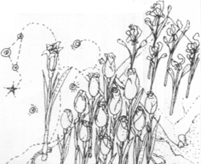
王和
神話小城
滿染鮮血的秋海棠葉下
悄悄地躺著
身軀跨過濠鏡海峽
頭顱蜷在大學的山崗上一條灰色巨龍
血紅的天空
把大海也滴得通紅
修煉四百年的精靈剛成形
就得浮在濠鏡一隅
靜靜地吐血
因爲紅鬚綠眼的魔鬼
眨間貶爲嘍囉小妖
赤腳的都升爲大仙
在天地混沌的三界邊緣
東大山崗上的修道者練不成天眼通
投訴天道衰落
飛昇五行六道外去
所以巨龍只剩下奄奄的一息
因爲牠有一個怪怪的名字馬交
Wang He
("A SMALL LEGENDARY CITY
A quiet grey dragon,
Is lying, on bouquets of begonias,
Tainted with blood.
Its giant body,
Filled the Strait of Hou Keng,
with the head on University hill.
The bloody sky,
Covered the ruby sea;
The soul of four hundred years,
That stopped having its image,
Had to remain apart,
In a corner of Hou Keng,
In silent hematemesis.
The Monster-King with a red beard
And green eyes,
Instantly turned into a small devil:
While another, barefoot,
Became supernatural.
By the tenebrous border,
Between the Earth and the Sky,
A Daoist was not able
To be 'Tian Yan Tong',
On the Oriental Mount.
He protested with the decadence
Of celestial law,
That left,
for the five elements
And the six theories.
The moribund dragon,
Remained here alone,
For he has a fantastic name,
-Macao")
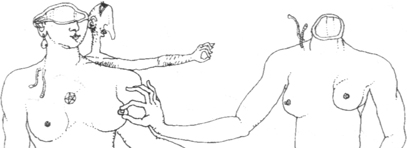
平易
乘客
嵗月早已使你黯淡
寂靜的長路如此寂靜
花園里的長椅空了
稀疏的竹影走不進
你毫無色彩的夢
你回答不了我的疑問
只能隨意指點疾掠過的飛鳥
無心閲讀
古舊的殘碑剝落的銘文
陽光
從帝國的夢想中歸來
下午安安靜靜
你坐在異國的廣場
或許將永恆地騎在馬背上
你隨手抛下的詩句
變成行人向交错的街市湧去
你還會笑么
夜深了你又要走了
平凡的日子已揭示不出
充滿失眠的思緒
你曾在一個小小的城市想起我
那些遺忘在星辰下的作品
將變成對於道路的回憶
Ping Yi
("PASSENGERS
With the time that has passed,
It was diluted.
It accompanies me long and tortuously
In the silence of the roads.
In the garden, the bench always empty with the decorative dream of bamboo shadows.
And cannot answer my question,
Only the imaginary birds rapidly flew
suggesting...
Lights of the sun
Returned from the dream of the Empire.
In the evening, much silence.
He sits in a square in a remote country
Perhaps immutable mounting on his horse.
Does he still have his eternal smile?
At midnight, he is already leaving.
But I am certain
I will remember a city of the Name of God.
Its forgotten poems
Spreading, shining among the stars")
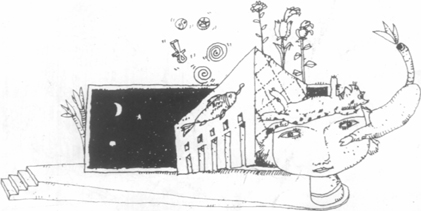
莊文永
阿E小傳
阿E他一拐一拐向著長長的街
路走
我捲起褲筒戰戰兢兢跟隨他
背後
針織工人也拉起橫額隆隆走向
城市的心臟
我們注定在這里驚險奇遇
我們的渴望充满了溫情
我很想親昵地喊你:阿E老爹
你好嗎
你赳赳如一海神卻没有任何
色彩
你回過頭來臉上的青腫色塊像
秋夜的寒星
没有人爲你流淚
阿E老爹
每次我都把你象徵爲生活的
標誌
你的額頭蕩過多少風雨
你的妻子一日三次向你老鬼要
些什么
這點我當然淸楚
但你在城市底層的方格里無
法突破
它的格局
太陽不因你而放亮
天照様下雨
臨街對面照様有人舉行開業
剪綵
立法委員照様爲民請命通過
加薪法案
阿E老爹
你的額頭也加了幾條深深的
皺纹開滿迷人的冰花
我也緊咬雙唇緊咬滴出一點
晚霞
我再一次深情的喊你:阿E
老爹
外面世界與你無關
要去的地方離我們十分遙遠
你咕噜咕噜的聲音是你們口
中的含珠隨意隨意吐出街
路動聽而無力
老英雄桑地亞哥也曾被鲨鱼
趕出大海
你的宿命之鄉是那一條街的
盡頭
回家吧,阿E老爹
倚杖走向你老妻傷心描繪的
情景
我閉目爲你祈禱:一路平安
Zhang Wen Yong
("A SHORT BIOGRAPHY OF UNCLE A E
Uncle A E, you are limping down a long street
Timid, I follow you, my trousers rolled up
the moment the weavers move into the heart of the city
lifting the sashes
We are destined to cross paths
We are embracing an emotional desire
I want to give you a loving greeting:
"How are you, uncle A E?"
You are as brave as the God of the Sea
but without legendary splendour
You turned your head
letting me see your face with wounds shining like
the stars of the cold Autumn night
No one cries for you
Oh, uncle A E
only I respect you as a symbol of life
I don't know how many rainfalls and winds have marked your forehead
and I understand perfectly what your wife asks you for three times a day
For you never manage to escape the gates of the city
The Sun does not smile for you
The rain does not stop for you
On the other side of the street another company opens its doors
In the assembly the ministers defend the public interest and approved,
as always, the new act to increase salaries
Uncle A E
Time has furrowed your forehead to the extent
that from my closed lips flowed a red drop of twilight
Oh, uncle A E!
I call you once again from the bottom of my heart
The outside world does not interest you
because the destination we want is very far away
because the murmur you pronounce is fascinating like pearls
but they cannot be used
to communicate with others
Even Santiago, the heroic fisherman, was expelled from the sea by a shark
The destination of your land is not merely the end of that street
Oh, uncle A E
Return home with the help of your cane
and tell your wife the story of a melancholy heart
and I pray for you with the best of wishes:
"Have a good trip!")
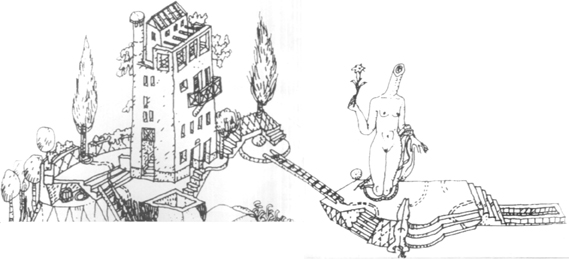
PORTUGUESE LEXICON
Bafá = A Chinese card game that used to be played in Macao.
Bagi = A dessert made with rice, coconut, milk and sugar.
Barba = A pastry made at carnival time (fine strands of caramelized sugar rolled in the shape of a crown and dusted with lightly toasted flour).
Batatada = a cake made with sweet potato, coconut and eggs.
Bicha = a maid or slave.
Bicho-bicho = a pastry that is fried and covered with a sugar glaze.
Bolo menino = a cake made with pine nuts, coconut and ground biscuits, and covered with icing sugar.
Cabaia(s) (Chinese-English: cheong-sam) = A tight-fitting high-necked dress with slits at the sides.
Cabelo de noiva = a dessert consisting of fine strands of egg and sugar.
Calda de chacha = a glaze.
Chilicote = a cake.
Cilicário = a pastry made with eggs, milk and sugar, and cooked in a double boiler.
Do-dol = a cake made with perada, jaggery, pine nuts, coconut, almonds, butter, lard and rice flour.
Entena-podre = a very flaky cake.
Fula-fula = a pastry made with rice, jaggery, toasted peanuts, etc.
Geleia = gelatin obtained from cows' hooves.
Genete = small cakes made with corn starch, eggs, butter, etc.
Ladu = a dessert made at carnival time (rice, jaggery, toasted pine nuts, coconut, etc.).
Mamoon = a pastry made with rice flour and eggs.
Múchi-múchi = a rice pastry with grated coconut, toasted bean powder and sesame seeds.
Nhom = a man who has a European father and a Macanese mother.
Nhonha = a Macanese woman.
Obreia = a wafer.
Pamonha(s) = A cake made with rice or cassava.
Pão-recheado = stuffed bread.
Pasteis de nata = pastries filled with custard.
Pastelinha-
Pei-pá-chai 巴發牌 bafapai = a professional female singer.
Perada = a type of pear marmalade.
Rebuçado de ovos = a candy made with eggs and sugar, with an almond centre.
Saransorável = a cake that is covered with grated coconut and darkened with toasted bean powder.
Surang-surave = a Macanese pastry.
Terno = a shelf in a box used for carrying pastries.
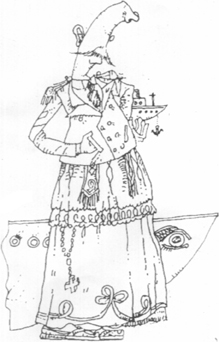
NOTES
* The I ENCONTRO DE POETAS DE MACAU (FIRST MEETING OF POETS OF MACAO) took place on the 10th of December 1994 at the Sir Robert Ho Tung Library, in Macao. The event was sponsored by the Instituto Cultural de Macau (Cultural Institute of Macao).
1 And in Portuguese:
"O LAMENTO DA AVÓZINHA
A Avózinha, com este frio,
Metida em casa, xale sobre os ombros,
Não pára de resmungar.
Diz e torna a dizer que é uma pena
Ver tantas coisas boas
Da nossa Macau dos tempos idos
Desaparecer, umas após outras.
Petiscos deveras apetitosos
Que as pessoas em casa faziam,
Festas que tinham a sua piada,
Vida barata, tranquila,
Gente hábil para tocar e cantar,
Tudo depressa se sumiu,
Ficando apenas na lembrança.
"Um pote de boa perada, °
Um pacotinho de fina barba, °
Onde se vêem?", pergunta a Avózinha.
"Cilicário, ° geleia, ° que é deles?
Cabelo de noiva, ° genete, °
Pudim de leite, batatada, °
Doce de abóbora, onde estão?"
"Rebuçado de ovos, calda de chacha, °
Entena-podre, ° obreia, ° mamum, °
Bicho-bicho, ° múchi-múchi, °
Patéis de nata, ° fula-fula, ° bagi, °
Bolo de coco, ladu, ° saransorável, °
Bolo mármore, bolo menino, °
Quem há aí que os faça?"
"Onde descobrir chilicote, °
Massa folhada, pastelinha, °
Pão-recheado, ° croquete,
Pastéis de camarão, pasta de nabo,
E muitas coisas mais,
Todas são deliciosas,
Que até nos fazem ficar a apetecer?"
"É ou não é uma lástima ",
Pergunta a Avózinha com voz chorosa,
"Vermos vazios em nossas casa
Os ternos para bolos e doces,
Por causa das exímias doceiras
E os pateleiros de agora
Se terem tornado preguiçosos?"
O entrudo nos tempos antigos
Era fartar-se de divertir;
Por toda a parte se viam mascarados
A percorrer as ruas atrás da tuna,
Gracejando e brincando,
Os miúdos chineses diziam palavrões
E os mascarados batiam neles com um pau.
As casas de gente graúda,
E todos os clubes que havia em Macau
Davam bailes, uns após outros,
Na semana de Carnaval,
Uns cantavam, outros dançavam animadamente,
E, depois de comerem lauta ceia,
Voltavam a dançar até ao amanhecer.
Lembrando o entrudo, a Avózinha diz...
"Comédia não podia faltar.
0 Chencho dos meus pecados,
Acompanhado de seus amigalhaços,
Subia ao palco para dizer larachas.
As madamas, torcendo-se nas cadeiras
Riam até fazer xixi, molhando o sobrado. "
Apesar dos ordenados, naqueles tempos,
Serem uma míngua de patacas,
A vida barata permitia às pessoas
Viverem com menos arrelias.
Sabendo ser dona-de-casa,
O dinheiro havia de chegar
Para todos os tipos de despesas.
Casa alugada, cinco ou seis patacas;
Cozinheira, uma ou duas patacas,
Lavadeira e a mulher da água
Não representavam mais do que uma pataca.
Com duas patacas se arranjava iluminação,
Do poço vinha a água para se lavar,
No pomar se arrancavam frutas para comer
la-se ás compras no mercado
Com sessenta avos no bolso,
E voltava-se com hortaliça, camarão,
Came de vaca, pato salgado,
Acrescentavam-se outros trinta avos,
Já se podia comprar porco, costeletas
E uma perna de galinha.
Peixe e gema de ovo de pata,
Soja e flor de árvore de papaia
Eram comida de gente pobre.
Em casa criava-se galinha
Que ovos havia até se fartar.
Para comprar inhame e batata,
Não era preciso gastar vinte avos.
A pensão de reforma do Chencho
Era apenas sessenta patacas.
Seu filho Atútu ganhava noventa,
A Avózinha confeccionava bolos para vender,
A Maria costurava para ganhar,
Corn este dinheiro todo,
Eles viviam com certo desafogo.
Sem fim lamuriar,
A Avózinha diz que dinheiro agora não falta;
0 que não há são coisas boas.
Há casa e casarões,
Gente hábil, aparelhos modernos,
Mas não há do-dol ° apetitoso,
Para comermos com biscoito."
start p. 115
end p.